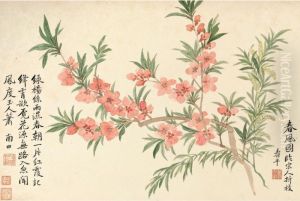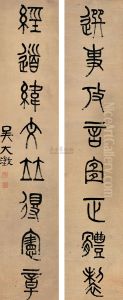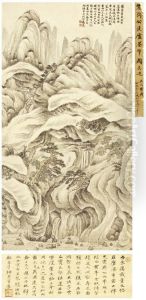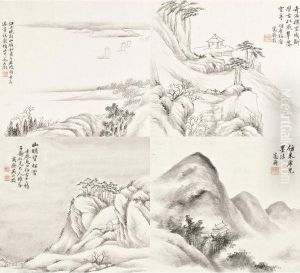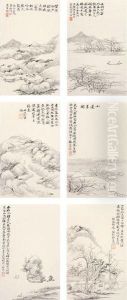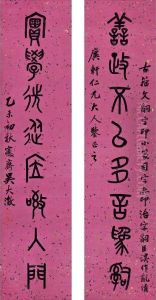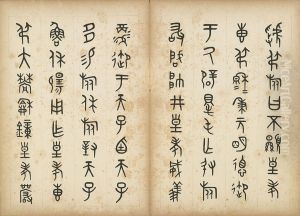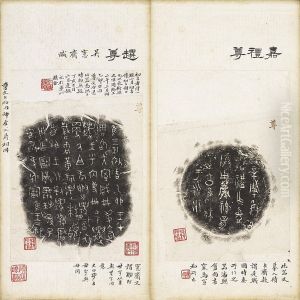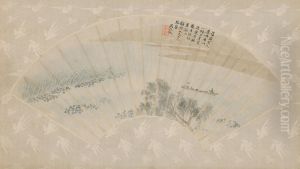Wu Dacheng Paintings
Wu Dacheng was a prominent Chinese official, poet, calligrapher, and art collector who lived during the late Qing Dynasty. Born into a scholarly family in Suzhou, Jiangsu Province, Wu was well-versed in the classics from a young age and passed the highest imperial examination, achieving the distinguished rank of Jinshi, a testament to his profound knowledge and literary skill.
Wu's career spanned various governmental positions, where he was known for his integrity, administrative competence, and efforts to implement reforms. Despite the turbulent times marked by internal strife and foreign aggressions facing China during his lifetime, Wu endeavored to strengthen the state through educational and military reforms. However, his political career was often marred by the conservative factions within the Qing court, which resisted change and innovation.
Apart from his official duties, Wu Dacheng was deeply involved in the arts, particularly in poetry, calligraphy, and collecting ancient artifacts. He is renowned for his contributions to the study of epigraphy, the study of inscriptions. His work in this field helped lay the foundations for modern Chinese epigraphy, making significant strides in the preservation and analysis of ancient Chinese bronze inscriptions and stone steles. Wu's calligraphy was highly esteemed, characterized by its elegance and strength, blending the traditions of earlier masters with his unique style.
Wu Dacheng was also an avid art collector, amassing a vast collection of ancient Chinese art, including bronzes, ceramics, and jades, which he studied extensively. His scholarly work on these artifacts contributed significantly to the field of Chinese art history, and his collections were invaluable for future generations of scholars and collectors.
Despite his contributions to Chinese culture and governance, Wu's life was not without controversy, particularly regarding his role during the Taiping Rebellion and his interactions with the Western powers during his tenure as an official. Nevertheless, his legacy in the realms of literature, art, and early Chinese archaeology remains influential, marking him as a key figure in the cultural history of late Qing Dynasty China.
